Why Read Dystopian Novels?
Written by P.J. Hoover
A world in which children are sent to battle to the death for our amusement. One in which the moon has been knocked from its orbit. And another in which scientists weed out inferior humans. Recent young adult literature is filled with grim scenarios of utter destruction. My newest book, Solstice, is a dystopian novel (with a huge mythological twist) set in future Austin, Texas during a time when global warming is destroying the earth. Daily temperatures are 115 degrees F or higher, and giant retractable domes have been built over the city to help protect those who live there. The global heating crisis is a slow, yet severely damaging, process; in this world, food and water shortages are the norm and government officials are constantly looking for an edge.
As the mother of two kids, I am constantly looking for reading material with content appropriate for their ages. It used to be easy in elementary school, but as they reach the upper grades, I struggle with the issue of how young is too young to read about certain topics or to read certain books. It’s one thing to write the books, but how do I feel about my own kids reading these dystopian tales?
Now I’ll be honest. I immediately put Solstice in the hands of my middle-schooler, and not just because I am the author. I adore dystopian novels, and I want to share that love with my kids. My bookshelves are lined with these types of novels, and my middle-schooler devours them just like I do.
Consider this. A world in which a power mad dictator kills millions. One in which child soldiers are sent to war. And another in which slavery is an acceptable norm. These things really happened. Humans really treated each other this way. The history of the earth is filled with dystopian times, and the stories from these eras are brutal and cruel. And though in concept, these stories are not very different from how so many dystopian novels portray the world, I am reluctant to introduce these horrors to my children.
It’s one thing to escape with a book and enter a fantastical world. Readers can immerse themselves in a world of peril, have great adventures, and be the hero. In Solstice, the reader can follow along as the main character, Piper, escapes to the Underworld in an attempt to save her best friend from death cause by the global heating crisis. They can feel Piper’s panic, fear, and uncertainty. And when the story concludes, readers can return to the safety of their own world and know that the story was make-believe.
It’s another thing to enter a story about the real world. At the end of the story, there is nowhere to return to. The world remains the same world in which the reader lives, except it has now been darkened.
Why do I feel okay about letting my kids read dystopian literature? Because facing reality is an inevitable part of growing up. It can’t be ignored. And in these stories, be they real or fictional, in times of darkness, there are people who are heroes who bring light. No matter how dark the situations may be, there is hope. And that’s what we see in dystopian young adult novels. There is always hope. And that’s why you want your kids to read them.
…………………………
From the Tor/Forge June 17th newsletter. Sign up to receive our newsletter via email.
…………………………
More from the June 17th Tor/Forge newsletter:
- Postultimate Postulations by Ofir Touché Gafla
- The Writer, Not the Song by Alex Bledsoe
- Summer Grab Bag Sweepstakes

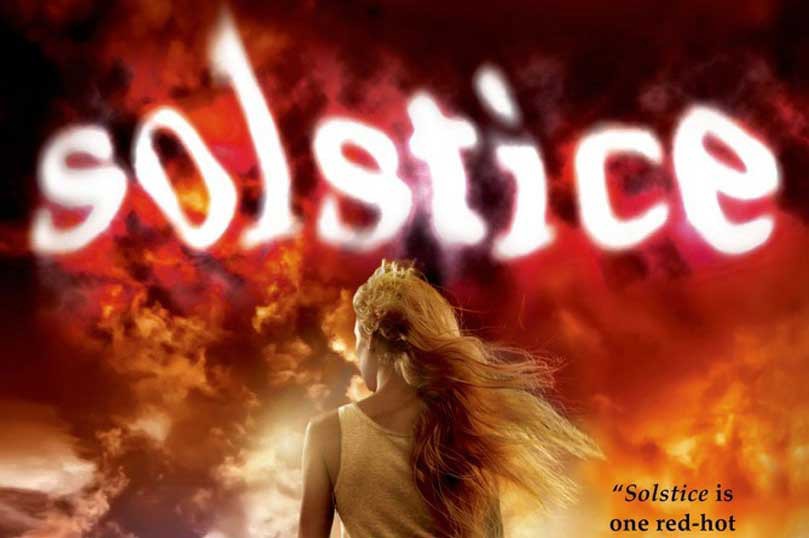

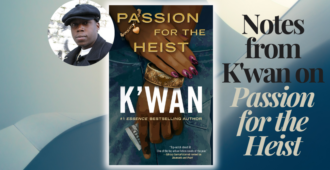
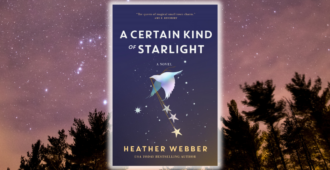

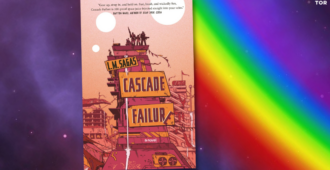
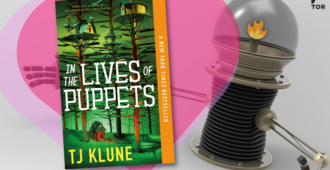
Reblogged this on It's Kind of an Electronic Book.
Your article is an excellent description of why I love dystopian literature and why I read the books first before passing them to my granddaughters. One is a now a teen (heaven help us soon she’ll be on the highway behind a wheel!) and the other is a tween who thinks she is quickly approaching 30.
I totally agree, Definitely a good idea to read before passing it on!! lol
I’ve been reading dystopian fiction since the 1950s; I’ve always loved it. I really like your line “facing reality is an inevitable part of growing up.” Wish more parents knew that.
Oddly enough, I think I’ve only ever written one post-apocalyptic story. Hmm. Time to do a novel of the end of the world, maybe.
We read dystopian stories for the same reason we read any story, to sympathize with the protagonist as he/she overcomes adversity. The only difference in a dystopian story is that the adversity is a universal condition instead of specific to the protagonist. A dystopian milieu is no different than any other obstacle; it is a plot device used to show the protagonist’s triumph.
I’ve loved dystopian books since I discovered my first one as a child who read anything and everything. I really prefer those who leave the reader with a sense of hope – not necessarly the proverbial happy ending, but just a feeling that things will somehow, someday be ok.
You use the past tense in referring to various forms of atrocity: “happened”, “treated”. But most of these things are going on right now. One potential result reading dystopian fiction can accomplish is to communicate to children that these things are not just “the sort of thing that happens to other people” — people who are in other places, and of other colors, so one is safely isolated from their experience, which can safely be ignored. Imagining oneself in circumstances other than comfort might betimes be the beginning of empathy.
That’s an excellent point of view to have! I agree it’s good for them to experience these things through fiction!
I’m also lover of dystopian novels–I’m even trying to write one myself–and I’ve been reading them longer than it’s comfortable to admit. Like other dystopian addicts, I too dearly love justifying the fundamentally pessimistic worldview they depended on with assertions of how really and truly they are meant to wake us up–to alert us to the dangers of their authors’ favorite ills. But that is self-serving. Utopianism flourished during the renaissance when Western civilization was young, heroic, and because people believed the future belonged to them. Today, there are too many problems so we see the future as dark. Most of us, I suspect, think the best is past and the future will be worse, maybe much worse. ‘Dystopianism’ is popular because was no longer believe in ourselves. If we did, we’d be writing utopias.
I also love to read dystopian novels. In some ways I see them as not only chronicles of potential futures but as cautionary tales of what could happen if something isn’t done and done fast. Most are a good reminder that the earth will protect itself from invasive species like ours and we’d do much better to work with it instead of trying to bend it to our will. My hope is that the kids who read them will grow up to be stronger activists and protectors of the planet than we have been.
I don’t remember YA dystopia being as widely available when I was a teen back in the 70s. However, I read it when I could find it (historical fiction set in hard times was also a favorite). I couldn’t relate to the sugar-coated worlds enjoyed by girls my age in “realistic” high school fiction, where the main character’s biggest challenge was finding the perfect prom dress. Life is often hard even for kids in relatively safe and affluent countries like the U.S.; I don’t recall my teen years being a picnic in the park. I think many teens today relate to characters who face big challenges.
Can someone explain to me, especially those who ponder the FUTURE, why in all the depictions of our Dystopian Futures, people have perfect teeth? Where do they get the perfect Dental care? I, of course, am talking mostly about Dystopias as they are depicted in the movies and on TV. Like the Hunger Games. Or Revolution. You would think, the younger kids in those shows/movies would NOT have “perfect teeth”. Do the authors in Dystopian Fiction even consider the Health of their characters? The only Dystopian/Post-Apocalyptic Novel that I can remember that “really” dealt with the issue was “The Road” by Cormac McCarthy.
Yes! Perfect teeth, perfect skin tone, perfect manicures and pedicures, clean hair, etc! That has long been a pet peeve of mine.
I recently moved to Austin and I like Dystopian books so I am eager to read this one! 🙂
Привет всем !
My own dystopian novel is awaiting publication in November, and I know the appeal of these novels. They seem to take on the darker aspects of society and ourselves and give us characters who fight against it. It’s especially helpful to read them if you find yourself disillusioned with most of the world.
And I wouldn’t worry too much about what your kids read, especially if they’re very mature. I got into Anne Rice when I was ten and Stephen King a couple years later. Rather than warping me, these stories really enhanced me and my writing (and that’s something considering the subject material of both authors).
One of my favorite novels of all-time is dystopian: “1984” by George Orwell.
I love dystopian novels as well such as Fahrenheit 451 I can’t wait to read your Dystopian book. Thanks for sharing!
I love dystopian fiction, too! Great post! Congratulations on being Freshly Pressed!! 🙂
Thank you, thank you, thank you. I get upset when people claim dystopians are “bad” for children or glorify violence, etc. To me, the most important thing in fiction is truthfulness, and even more so when it’s directed at children and teens. There’s not much that’s scarier than what you can see on the news. Dystopians help us cope with that, and give us hope that things can get better.
I’ve always been a fan of dystopian literature. I have always thought Huxley’s “Brave New World” did the best in predicting our current culture.
Great post!
Sincerely,
Julien Haller
When I was a young adult in the 70s, I was required to read 1984, Brave New World, War of the Worlds. Those weren’t exactly YA books, but I read them when I was a YA. You are right, there is a lot of dystopian times in our history. We also read the Diary of Ann Frank and the Hiding Place by Corrie TenBoom.
Reblogged this on thewordpressghost and commented:
Friends,
This is an author’s perspective of their novel. And why they let their kids read dystopian novels.
I do not know if the novel is any good, the reasoning is ok, even if it is unlikely global warming will make Earth average 115 degree days. It has never done so throughout history.
But, fiction is about escapism.
Enjoy.
Ghost.
I’m going to go get a copy of your book now! 🙂
Fahrenheit 451, hands down, best Dystopian story ever. Love to teach it, love the reactions my students have to it. It is reality, yet cloaked in a story we can escape into. It makes us look more critically of the world around us. Good luck with your book.
Ok damn…some kind of telepathy. I was thinking about writing a post on EXACTLY the same thing. I am trying to write a story which has turned out to be dystopian, because ofcourse I am obsessed with that genre.
Thing is…1984, the dystopian ‘fiction’, is turning out to be so true in many ways that it is uncanny. And not in the distant past a certain man started on a path to wipe out a whole race…and was so scarily close to being successful.
All the very best with your book! Is it already out in the stores?
As other commentators have printed out, in many parts of the world, fictional horrors are all too real, and the young have to live through them as well as the old. Here’s a post on the situation in Ghana for example: https://alastairsavage.wordpress.com/2013/01/30/dystopia-now/ Dystopia isn’t fiction – it’s happening now!
Interesting…do we get free copies for reading this…jk! *)
“Because facing reality is an inevitable part of growing up.”
That line describes exactly why I love dystopian stories! I’ll definitely check it out.
Handmaid’s Tale – Margaret Atwood – a reminder that dystopias can be anti-modernist as well as futurist, that one nightmare version of the future may well be an ‘idealised’ past (at least from a white male perspective).
It takes place in Austin?? ooo…might have to read it just because of that fact 🙂
There is something in the human psyche that envisages sudden destruction of all that is familiar. The stories feature in mythology across cultures – including ours. So I guess it’s not surprising that we have a fascination with the same themes in our literature today. All framed, inevitably, by whatever our latest social fear happens to be – which, to industrial societies of the last couple of hundred years, seems to boil down to dystopia.
Great post! I have always loved dystopian literature and could not agree more with what you have written.
Thanks for all the great feedback and insightful comments! I love being able to share these novels with my kids and enjoy reading and talking about all situations, both real world and fiction. Happy reading 🙂
This is a really great post! Like thousands of others, I enjoy reading dystopian novels, (i.e. The Hunger Games). However, my parents haven’t received them in the best way. In fact, though I might be 18, my parents still debated about letting me go to see the Hunger Games in the theater because it “depicts children killing each other over food and that’s not a movie I should be watching” Afterwards, I pointed out that even the Bible (my parents are devout Christians, as am I) depicts a king killing someone over their wife. I ended up winning the argument, but I couldn’t understand why my parents even had to think about it, it’s just a movie, right?
I agree. My mom didn’t have any issues with me reading the book, or even seeing the movie, but she questioned whether or not she wanted to see it. I told her that she might be sad, but it really wouldn’t be that bad, but I wouldn’t take little kids to it. Well wouldn’t you know, we go and there’s a bunch of little ones. The great thing was that it was tastefully done, so they didn’t seem to know what was going on. I agree with what you said about Biblical stories also being violent. They are often very violent, yet they teach us valuble lessons still. My mom loved the movie, by the way. She said that she was happy that there was a moral point, and that it was wasn’t super graphic.
I think dystopian fiction is important for everyone, but especially for young people. Nothing opens your eyes to the world like fiction, and there is no other time in your life when a story will stick to you quite like it does when you’re a kid. I remember reading 1984 in high school, and it completely changed my life. I’ll never forget it. .
Right now I’m writing a dystopian novel that takes place in a speculative future U.S. I keep going back and forth about whether to write it for teens. The story is pretty gruesome and I don’t want to have to hold back on the more disturbing elements. But I wonder if the story might be more important to young people. Thanks for your post! It gives me more to think about for my work.
I like Dystopian novels (and movies/shows) because they tend to represent almost a clean slate for mankind. Whereas we know laws and have rules that the majority of us follow because of social convention, all of that tends to be thrown out of the window in a situation where everything has been reduced to chaos. I think Dystopian settings are excellent windows into the soul of humans. It’s often interesting to find out what an individual used to do before the collapse of the world because sometimes you would’ve never guessed. So Dystopian works tend to have quite a few layers of mystery to look under. And the bottom line is, how does humanity and the human condition change after a catastrophic event?
I love dystopian books. I try my best to collect as many of those books and hope to own a little home library when I find a place of my own. I just want to recommend Divergent, City of Bones, and Delirium. They’re pretty popular but if you heard of them already, oh well. Just wanted to recommend it.
How many Utopian books are there? Maybe the Culture in Ian M. Banks’ books is a sort of utopia, but very few people have tackled the problem of how to write about a future with no problems – narrative needs conflict. Back in the 80’s I read a number of books where there is a computer-ruled, totalitarian ‘utopia’ that then brave teenagers had to take down to give back mankind its lost freedom. I always thought these lacked the part 4 where wars have started, and the brave teenagers are looking on and asking “What have we done?!”
Well, I digress. But dystopias are always about present day, 1984 was about the Soviet Union, Brave New World about consumerism, and Solstice above about global warming. Problems the writers were tackling when they were writing. Hunger Games I guess in part at least is about the way media has started to rule people’s lives (I have not read it). In comparison utopias are bland, as they do not speak to our anxieties, and they do not directly tackle solutions to those problems – any solutions are bound to be part of the background of the book. Most truly engaging science fiction asks some sort of philosophical, ethical or maybe psychological questions about how we deal with the future, which makes dystopias a fertile background for such stories.
Your article reflects my own feelings about this type of literature. I exposed my daughter to these themes and to graphic novels very early on. I found they helped me discuss the ‘real’ horrors of our history and present times. I feel it is just as important to discuss the real world as it is to have young people, even children, read about dystopian themes so they can become active in changing the world. I agree that reading these fantasy novels is a way to escape and to see heroic efforts to fight injustice, evil, greed, etc. Just make sure to segue these ideas into reality, for there lies the path of change in our suffering world. I feel very sad when I think there are so few activists left ,yet I think we can see that the surging interest in Science Fiction, Dystopian themes in young adult fiction, and super heroes in general reveals the need for hope. People want an answer, and they need leaders. Let’s make sure we raise some.
Very nice blog post. I absolutely appreciate this website.
Thanks!
My mother-in-law is 99 and lives here (also in her distant past). An orphan under a priest’s care in South America, she was sold when she was seven. Her story is how I learned that “One Hundred Years of Solitude” is not precisely fiction. My view of the so-called real world in the large is also pretty grim.
The post suggests to me that I should read (or dip into) Solstice and then (if I love it) pass it on to my 10-year-old Eragon-loving grandchild. Not, we know, for strictly utilitarian purposes, but because the endless possibilities of darkness/light are always– in the hands of good authors — welcome.
Nice. Blog post! I also love dystopian fiction. It led me to create my own blog, Dystopia Capitol. Your book sounds great, by the way! One if my favorite things about dystopian lit, is how creative yet plausible the worlds prestented are, and how desperate situations lead characters to grow emotionally. Very nice post to read!j
Reblogged this on Dystopia Capitol.